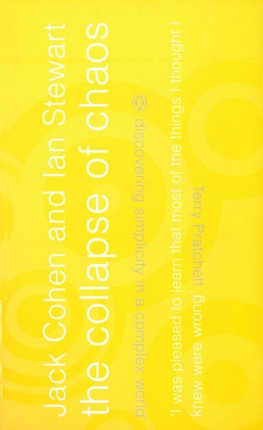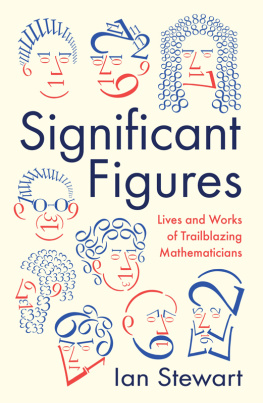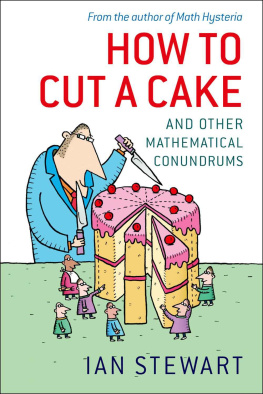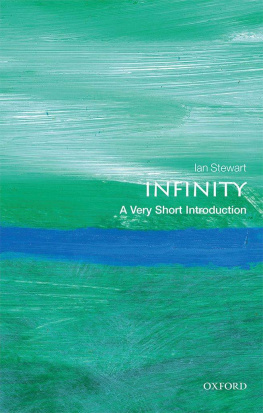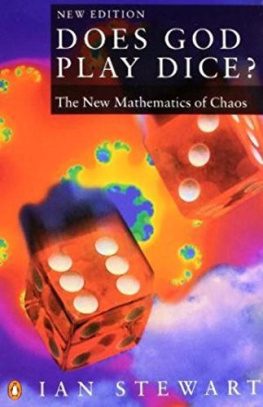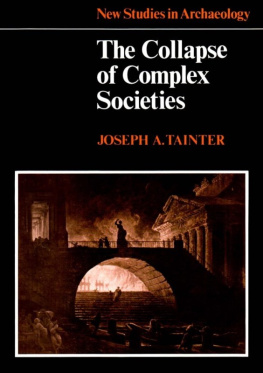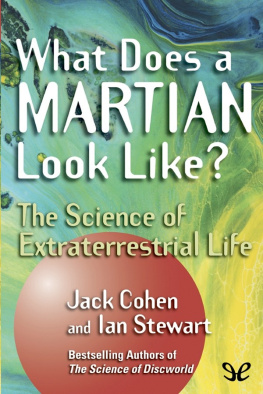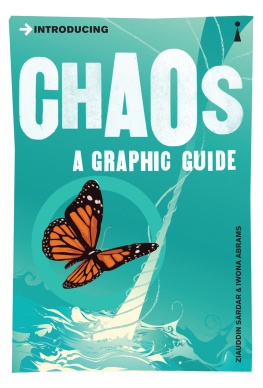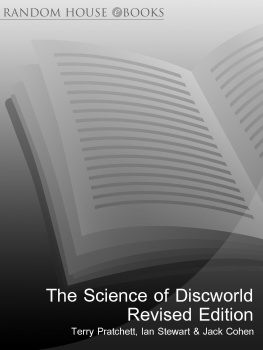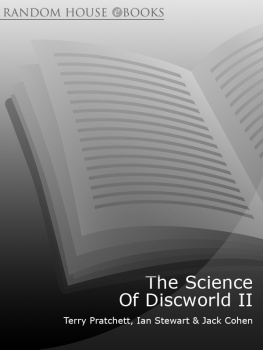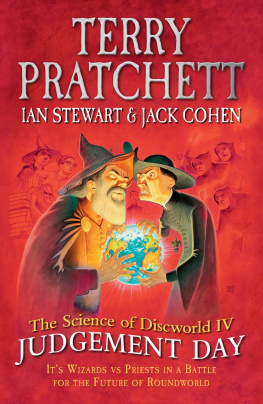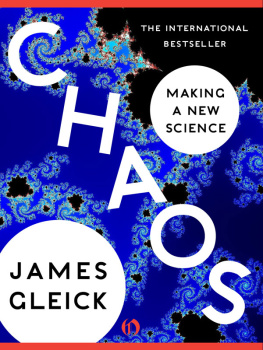Ian Stewart - The Collapse of Chaos: Discovering Simplicity in a Complex World
Here you can read online Ian Stewart - The Collapse of Chaos: Discovering Simplicity in a Complex World full text of the book (entire story) in english for free. Download pdf and epub, get meaning, cover and reviews about this ebook. year: 2000, publisher: Penguin UK, genre: Romance novel. Description of the work, (preface) as well as reviews are available. Best literature library LitArk.com created for fans of good reading and offers a wide selection of genres:
Romance novel
Science fiction
Adventure
Detective
Science
History
Home and family
Prose
Art
Politics
Computer
Non-fiction
Religion
Business
Children
Humor
Choose a favorite category and find really read worthwhile books. Enjoy immersion in the world of imagination, feel the emotions of the characters or learn something new for yourself, make an fascinating discovery.
- Book:The Collapse of Chaos: Discovering Simplicity in a Complex World
- Author:
- Publisher:Penguin UK
- Genre:
- Year:2000
- Rating:5 / 5
- Favourites:Add to favourites
- Your mark:
- 100
- 1
- 2
- 3
- 4
- 5
The Collapse of Chaos: Discovering Simplicity in a Complex World: summary, description and annotation
We offer to read an annotation, description, summary or preface (depends on what the author of the book "The Collapse of Chaos: Discovering Simplicity in a Complex World" wrote himself). If you haven't found the necessary information about the book — write in the comments, we will try to find it.
Do we live in a simple or a complex universe? Jack Cohen and Ian Stewart explore the ability of complicated rules to generate simple behaviour in nature through the collapse of chaos. The most startling, thought-provoking book Ive read all year. I was pleased to learn that most of the things I thought I knew were wrong -- Terry Pratchett
The Collapse of Chaos: Discovering Simplicity in a Complex World — read online for free the complete book (whole text) full work
Below is the text of the book, divided by pages. System saving the place of the last page read, allows you to conveniently read the book "The Collapse of Chaos: Discovering Simplicity in a Complex World" online for free, without having to search again every time where you left off. Put a bookmark, and you can go to the page where you finished reading at any time.
Font size:
Interval:
Bookmark:

PENGUIN BOOKS
THE COLLAPSE OF CHAOS
Jack Cohen is an internationally known reproductive biologist, who was a university teacher for thirty years, and has published nearly a hundred research papers. His books include Living Embryos, Reproduction; Spermatozoa, Antibodies and Infertility; and The Privileged Ape, a rather different look at human evolution. He now works with the mathematician Ian Stewart with whom he has explored issues of complexity, chaos and simplicity, producing several joint papers. He acts as a consultant to top science-fiction writers, designing credible creatures and ecologies, and frequently appears on radio and television programmes. His hobbies include boomerang-throwing and keeping strange animals.
Ian Stewart was born in Folkestone in 1945. He graduated in Mathematics from Cambridge and obtained a Ph.D. from the University of Warwick, where he is now Professor of Mathematics. He is an active research mathematician with over 130 published papers, and he takes a particular interest in problems that lie in the gaps between pure and applied mathematics. Ian Stewart has written or co-authored over sixty books, including Natures Numbers, shortlisted for the 1996 Rhne-Poulenc Prize for Science Books; The Science of Discworld (with Jack Cohen); The Collapse of Chaos, Fearful Symmetry; the bestselling Does God Play Dice?; Figments of Reality (also with Jack Cohen); and Life's Other Secret (several of which are published in Penguin). He is mathematics consultant for New Scientist and writes the Mathematical Recreations column in Scientific American. In 1995 the Royal Society awarded him the Michael Faraday Medal for the year's most significant contribution to the public understanding of science.
Discorering Simplicity in a Complex World
JACK COHEN & IAN STEWART
PENGUIN BOOKS
How exquisitely the individual mind to the external world
Is fittedand how exquisitely, too
The external world is fitted to the mind
And the Creation (by no lower name
Can it be called) which they with blended might
Accomplish.
W ILLIAM W ORDSWORTH
The next great awakening of human intellect may well produce a method of understanding the qualitative content of equations. Today we cannot. Today we cannot see that the water-flow equations contain such things as the barber pole structure of turbulence that one sees between rotating cylinders. Today we cannot see whether Schrdinger's equation contains frogs, musical composers, or moralityor whether it does not.
R ICHARD P. F EYNMAN
A t the heart of this book lies a paradox. The more we learn about the universe, the more complicated it appears to be, but we have discovered that beneath those complexities lie deep simplicities, laws of nature. How can simple laws explain complex behavior? Where does the complexity come from? How can the enormous diversity of life on earth have arisen from simple chemicals? How can a structure as complicated as the brain evolve? Over the centuries science has developed an extensive system of answers to such questions, a working philosophy known as reductionism, which shows how complexities on one level of description can be traced back to the interaction of large numbers of simple elements on a lower level. Much of the complexity of living creatures, for example, can be traced to the presence within them of the substance DNA. This truly gigantic molecule encodes a huge amount of information that tells an organism what to do when it develops.
The universe does not always seem complex. In our daily lives, we experience the world as a simple placein fact, we would be unable to function if we had to grapple with the complexities as such. So in order to comprehend our world and humanity's place within it, we must do more than just explain higher-level complexities in terms of lower-level simplicities. We must also explain why, on every level of existence, we can deal with the world as if it were simple.
Where do the simplicities of nature come from? The conventional answer is that deep down inside, nature is simple: It functions on the basis of simple laws. Any large-scale simplicities that we observesuch as the spiral form of galaxies, or the tendency of a flock of geese to string out in a Vare just the underlying simplicities becoming visible on a higher level. Unfortunately, this answer is no longer convincing. Chaos theory tells us that simple laws can have very complicatedindeed, unpredictableconsequences. Simple causes can produce complex effects. Complexity theory tells us the opposite: Complex causes can produce simple effects. And conventional reductionist science tells us that inside the great simplicities of the universe we find not simplicity but overwhelming complexity. A galaxy's spiral arms contain myriads of stars, dotted almost at random. One of the deepest simplicities of biology is that the genetic material of almost all life-forms is constructed using the same giant molecule; but its workings are based on an intricate chemical code, whose unraveling for humans alone will require an effort comparable to the entire American space program.
The Collapse of Chaos shows how simplicity in nature is generated from chaos and complexity. These twin themes lie at the frontiers of modern thinking and are commonly confused with each other. A spate of recent books has emphasized one or the other as a general principle for understanding the natural world. We ask how the great simplicities of nature can persist within a chaotic universe. Our story combines chaos and complexity, and derives simplicity from their interaction. We show that the same simple large-scale features occur in many different complex systems because patterns of that kind do not depend upon detailed substructure.
The book is in two parts. The first half is about what science knows; the second half is about how to think about what science knowsand what it doesn't. The first half is a guided tour of the Islands of Truth that have been mapped by conventional science; the second half is an adventurous and unorthodox dive into the Oceans of Ignorance that surround them. In the first half we can provide plenty of road maps to tell you in advance just where we plan to take you. We can't do that in the second halfbecause where we wish to travel, there are not only no road maps, but no roads. However, we do put up plenty of warning signs: Here Be Dragons.
In outline, the first half of The Collapse of Chaos explains how simple laws of physics lead, through the chemistry of DNA molecules, to the complexity of living creatures, evolution, intelligence, and human culture. This is the conventional reductionist view. Along the way we give a streamlined introduction to the central preoccupations of modern science, which we hope you will find accessible and well integrated. These areas include cosmology, quantum mechanics, the arrow of time, biological development, evolution, consciousness, intelligence, and culture. We present science not as a fixed body of established knowledge but as a developing body of ideas.
The pivotal chapter argues that asking where complexity comes from is really the wrong question. A more important question is, Why is there any simplicity? The book's first half provides an accepted scientific database from which the second half can address this more subtle issue by viewing science in context. We argue that simplicities of form, function, or behavior emerge from complexities on lower levels because of the action of external constraints. The focus moves from things to rules that govern the behavior of things. We offer a novel and indeed sometimes heretical approach to the questions discussed in the first half. For example, we argue against the view of DNA as a genetic blueprint for organisms by demonstrating that in principle two totally distinct organisms might possess identical DNA. Does this happen in nature? Ah, that would be telling. In place of the view that evolution is the direct result of chemical changes in DNA, we argue that most changes to the form of an organism occur without any genetic changes at alland that even when the form stays constant, the genes may be changing substantially.
Font size:
Interval:
Bookmark:
Similar books «The Collapse of Chaos: Discovering Simplicity in a Complex World»
Look at similar books to The Collapse of Chaos: Discovering Simplicity in a Complex World. We have selected literature similar in name and meaning in the hope of providing readers with more options to find new, interesting, not yet read works.
Discussion, reviews of the book The Collapse of Chaos: Discovering Simplicity in a Complex World and just readers' own opinions. Leave your comments, write what you think about the work, its meaning or the main characters. Specify what exactly you liked and what you didn't like, and why you think so.

